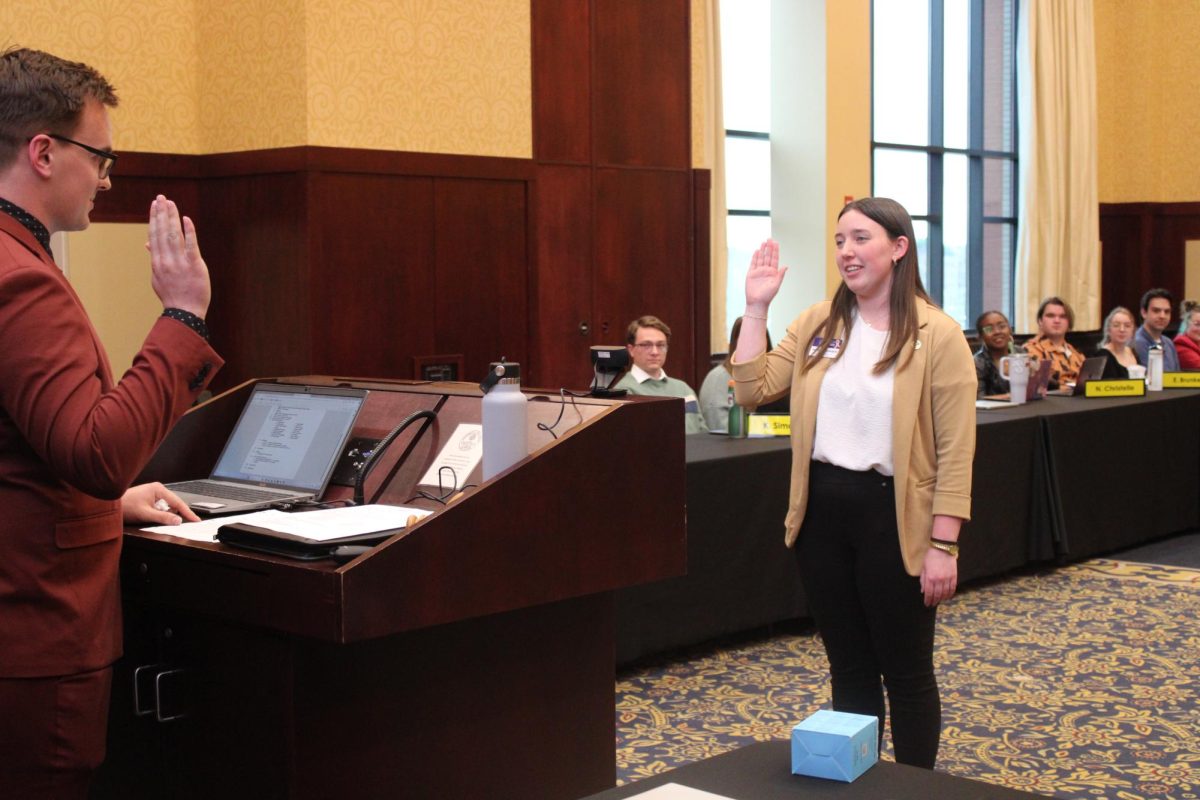 Ben Smidt
Ben Smidt
UW-Eau Claire’s ranking among the top public universities in the Midwest dropped to fourth this year, according to U.S. News & World Report.
After placing third a year ago, Eau Claire fell one spot last week in the magazine’s annual top college rankings. Truman State University (Mo.), University of Northern Iowa and UW-La Crosse made the top three, respectively.
Eau Claire also placed 27th among all regional universities in the top tier of the “Best Universities-Master’s” category.
Yet, each year when the magazine comes out with its list of America’s Best Colleges, questions are raised regarding how one magazine can accurately measure and rank more than 1,400 colleges and universities.
Chancellor Donald Mash said the quantitative measures used in evaluating colleges and published with the report are useful data for comparing colleges. The rankings themselves always will be questioned, though.
“I think we have to take the overall rankings with a grain of salt — keep them in perspective,” Mash said.
A Sept. 13 Associated Press article noted that critics consider the U.S. News’ system flawed because it uses administrators’ opinions as measurement tools.
U.S. News Managing Editor Brian Kelly said in the article that too much focus is placed on the rankings and not enough on using the data to compare colleges.
“They say you have to look at what kids are actually learning and what their experiences are on campus, how much time they are spending with professors and so forth,” Kelly said. “Well, that’s a nice notion, but to actually quantify that is very difficult, if not impossible.”
Kay Magadance, institutional planner at UW-Eau Claire, said U.S. News sends the university a survey in February and allows about 30 days for it to be returned.
“They’re looking at student statistics — retention, graduation rates — it’s purely statistical,” Magadance said.
According to the magazine’s Web site, www.usnews.com, the statistical indicators it uses to rank schools are retention rates, faculty resources, student selectivity, financial resources, graduation rate performance and alumni-giving rate.
Magadance collects those statistics for Eau Claire and reports them to U.S. News.
“What I provide to them is truly quantitative information and doesn’t take into account unique programs at this university, what kind of students we attract and the focus of this curriculum,” Magadance said.
U.S. News’ report fails to take programs, such as service learning, freshmen experience and study abroad, into account for its statistical evaluation of schools.
“All of those things we do very well and they don’t get picked up in the numerical ranking,” Mash said.
But when the magazine tries researching to evaluate those aspects of a university, it runs into criticism for using qualitative measurements that are hard to apply to cut and dry comparisons.
The other part of the magazine’s evaluation — peer assessment — is the opinion of a president, provost, chancellor or dean.
According to the Web site, the top administrators are asked to do the peer assessment to account for intangibles, such as faculty dedication to teaching.
Mash said the assessment consists of a questionnaire in which he evaluates other campuses in Eau Claire’s region.
He said this form of assessment is more subjective. The focus should be on comparisons with other schools in the university’s region.
“There are some good uses for the data,” Mash said. “We just need to keep what we’re using the public ranking for in perspective.”






